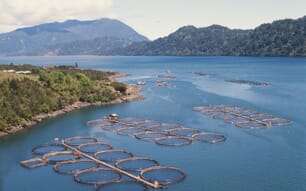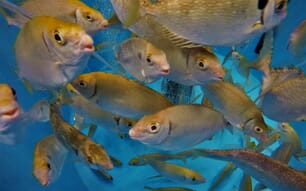RAS farming is an excellent use of technolgy to manage water quality and fish welfare more effectively, said Jacob Bregnballe, Akva Group, whilst giving his keynote presentation on RAS in Europe at Aqua Nor 2013. Using RAS gives farmers more control over the system and its environment.
The control of effluents and waste is much easier in RAS as the farmer has less waste going out. The ability to have more control over the quality of the water also helps to producer healthier fish in a good welfare environment.
The recirculating aquaculture system itself is broke down into several components. The mechanical filtration cleans feaces from the water which are bigger than 40-50 microns, preparing it for the biofilter.
The degaser then strips the water of CO2 which is very important to the health and welfare of the fish as it allows for optimal growth and feed conversion rates.
After oxygen has been injected to enhance the O2 availability, the pumps come into use.
Pumps can be custom designed to suit the system, therefore reducing costs and improving efficiency.
Overall, energy costs are quite good in RAS. They are about the same as in flow-through systems yet they offer the extra control.
Another advantage of using RAS is that the whole system can be monitored and controlled from a mobile, laptop or tablet device. It also allows for conditions to be tracked and recorded over time.
RAS systems are also a more sustainable form of fish farming as they use a huge 99.4 per cent less water than other farming methods.
Also speaking about RAS, Frode Mathiesen from Grieg Seafood, said that he expects a seven per cent growth in RAS each year.
Offering excellent control and a more sustainable way of farming, it is no suprise that the popularity and use of RAS is growing all over the world. However, Mr noted that he would like to see more research into fish welfare and CO2 in RAS.




